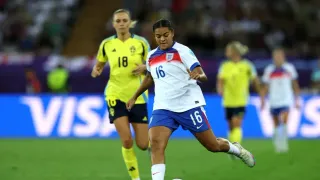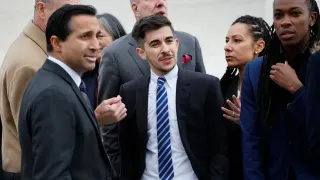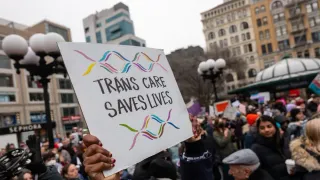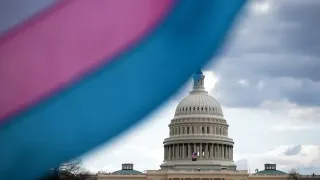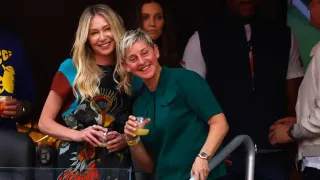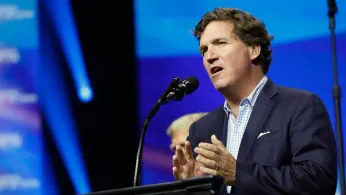
6 hours ago
Tucker Carlson Surprises With Agreement on Democrats’ Key Point About Trans Athletes
READ TIME: 3 MIN.
Tucker Carlson, a figure whose commentary has often been critical of transgender rights, has made headlines for remarks that align with a key argument advanced by Democrats and LGBTQ+ advocates. During a July speech at a Turning Point USA event, Carlson argued that the ongoing debate over transgender participation in sports is overemphasized by conservatives—mirroring a point frequently raised by those in favor of transgender inclusion and equality .
In his speech, Carlson maintained his personal opposition to transgender athletes’ participation in women’s sports, using language that has been criticized as offensive and exclusionary. However, he went on to assert that the focus on this issue by conservative leaders was disproportionate, stating, “You spend all day telling me that it’s so important that boys not play on girls’ soccer teams or whatever. I agree. I hate the tr**ny stuff, passionately. I think you should keep the boys off of girls’ soccer teams. But, I don’t know, it kind of feels like you’re feeding me appetizers. At some point, I want to look around and see a better country” .
Carlson’s remarks echoed the sentiment expressed by many Democrats and LGBTQ+ advocates: that the right’s fixation on transgender athletes is a diversion from larger national challenges, such as the opioid crisis and homelessness . This alignment—albeit couched in rhetoric rejecting trans inclusion—represents a rare point of agreement between Carlson and progressive voices.
Democratic leaders and LGBTQ+ organizations have long argued that the debate over transgender athletes is a manufactured controversy, used to rally conservative voters while ignoring broader issues facing American society . Many have pointed to the relatively small number of transgender athletes as evidence that the issue is being overstated for political gain.
Carlson’s comments have been met with a mix of surprise and skepticism within LGBTQ+ circles. While his acknowledgment of the disproportionate focus on trans athletes aligns with advocacy positions, his continued use of anti-trans language and his stated opposition to transgender inclusion in sports have drawn condemnation. “It’s important to note that while Carlson may agree with Democrats on the relative importance of this debate, his framing remains harmful to trans youth and adults,” said a spokesperson for a national LGBTQ+ advocacy group .
The issue of transgender participation in sports has become a flashpoint in American politics, with dozens of states introducing or passing legislation restricting the ability of transgender youth to compete in accordance with their gender identity . These laws have been condemned by medical and human rights organizations, which argue that they further marginalize and stigmatize transgender youth.
Advocates for transgender inclusion point out that sports participation provides critical opportunities for physical health, teamwork, and self-esteem, especially for young people facing societal discrimination. “Transgender kids, like all kids, deserve the opportunity to play sports and experience the benefits of belonging to a team,” said a representative from the Human Rights Campaign in a recent statement .
While Carlson’s comments do not indicate a change in his personal views about the participation of transgender athletes, observers note that his recognition of the issue’s outsized prominence may influence future conservative discourse. Whether this leads to a de-escalation of anti-trans rhetoric or simply a shift in political talking points remains to be seen.
For many in the LGBTQ+ community, Carlson’s comments are a double-edged sword. On one hand, they highlight a growing acknowledgment—even among some conservative voices—that the focus on transgender athletes is disproportionate to the actual impact of the issue. On the other, the persistence of stigmatizing language and opposition to inclusion underscores the ongoing challenges faced by transgender people in sports and society at large .
Advocates stress that true progress will require not only a shift in priorities but also a commitment to affirming the rights and dignity of all transgender people. As debates over policy and inclusion continue, the voices and experiences of transgender athletes themselves remain central to the conversation.
